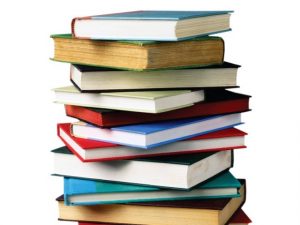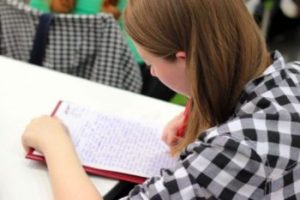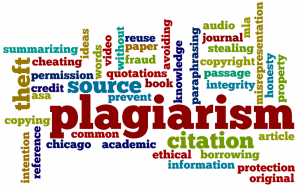ELA 1 Syllabus
Course Description:
Language Arts 1 focuses on the four language skills: reading, writing, speaking, and listening. In this course students build on the language skills they acquired during middle school classes to establish a good foundation for their high school effective writing and analytical reading. Every semester we will focus on an essential question that will guide our study and help shape students’ identities.
Required Textbook:
There is no specific textbook for this course. We will be using…
•a variety of print and online resources
•novels and short stories for SSR (Sustained Silent Reading)
•a wide selection of both fiction and nonfiction texts (news articles, essays, poems)
LA1 Essential Questions:
•Is it necessary to struggle in order to be successful?
What students Need to Do Well in LA 1 & 2
•Positive attitude
•Engaged learning
•Active listening and participation
•1-2″ binder
•Loose-leaf lined paper
•Pencils and Pens (blue/black and red)
•Highlighters (four colors)
•Glue Sticks
•Permanent markers (4-6 colors)
•Erasers
•Planner (should bring to class daily)
•White out
•Colored pencils or markers, scissors, and any preferred art materials (for class projects)
*The following donations are not mandatory but are highly appreciated (one item per student)
•Box of Tissues
•Hand sanitizer
•Clorox wipes
•Air freshener
Classwork and Assignments:
At the beginning of each class students will get the opportunity to engage in mindful discussions that relate to our essential question and the week’s assigned reading (Article of the Week AoW), Practice writing a variety of sentence structures, or read with a clear purpose in mind (SSR).
Special reading emphasis will be placed on vocabulary, word analysis, comprehension, and critical thinking skills ( identifying theme, author’s purpose,making inferences, interpreting figurative language…)
We will read silently for 60 minutes per week (sustained silent reading). In addition, everyone is expected to read at home for 20-30 min per night in order to finish at least one book per marking period. There will be several assignments tied to this reading.
All semester 1 assignments will be relevant to the following standards:
RL/RI 9.1
- Textual Analysis: explicit meaning, inferences, strong supporting evidence, thorough textual evidence
RL/RI 9.2***
- Main Idea: supporting evidence, development in text
- Summary: detailed and objective
- Summary: organization
RL/RI 9.4
- Words in context: explanation of meaning, implicit meaning, impact on tone
SL 9.4
- Presentation: vocal clarity, vocal enthusiasm, eye contact, compelling ideas, organization
L 9.1b
- various phrases/clauses
W 9.1A
- Intro paragraph: Hook
- Intro paragraph: background for claim
- Claim: clearly stated position
- Claim: 3 reinforcing reasons
- Counterclaim: addressed
- Counterclaim: clear connection to claim
- Writing Organization: topic sentences
- Writing Organization: logical order
- Writing Organization: transitions
- Reasoning: connection b/w evidence & claim
Grading Policy:
This course will use a standards-based grading approach. You will be expected to demonstrate understanding or mastery of specific knowledge/skills/standards as we progress through the course.
Absences:
Follow the below steps to find out what you missed:
1.Check the class blog
2.Ask a trusted classmate
3.Email teacher for clarification
4.Make arrangements to take a missed test/quiz
** If an assignment is announced before your absence, it MUST be turned in or completed when you return.
** All missed assignments (assigned when you were absent) are due within a reasonable amount of time.
Expectations & Guidelines:
•Cell Phone Usage: Cell phones are not on the materials list, so they are not allowed in class.
•Bathroom Policy: You may not leave the classroom without your own planner signed by your teacher. Bathroom passes are only given in case of an emergency.
•Gum, Food and Drink: These are not a right but a privilege. It is all based on your behavior, class participation and the quality of your work. You can always bring a clear bottle of water to class.
Dearborn High School Plagiarism Policy & Academic Honesty Agreement:
Dearborn High School has high expectations for students and hopes that students have equally high expectations for themselves and their classmates. Students are reminded that all of their work should reflect their own efforts and ideas. Work from other sources must be cited accurately. Unless directed by a teacher, students must assume that all assignments are to be done individually.
The Merriam-Webster Dictionary defines plagiarism as “the use of the words or ideas of another person as if they were your own words or ideas.”
Examples of Academic Dishonesty (plagiarism/cheating):
•buying and/or copying a paper or partial paper from a person or website
•copying material from the source text without proper citation
•copying word for word without properly listing the source
•copying a classmate’s homework or classwork for any subject or class
•allowing a classmate to copy work from any subject or class
•looking at a classmate’s paper or discussing/sharing answers during work time, quizzes, or tests
•looking at or taking assessments and/or answer keys from a teacher
•using electronic devices to find information when that is not the intent of the assignment
•using electronic devices to give help, answers, or advance knowledge to other students
•disclosing test or quiz questions or answers to classmates
•turning in and/or taking credit for an assignment you did not do yourself
Possible Consequences for academic dishonesty:
•Student may receive a failing grade for the assignment.
•Student may not re-submit paper, project, quiz, test, or assignment.
•Coaches, directors, advisors, etc. may be notified.
•Disciplinary action will be taken. The range of action will be in accordance with the Student Code of Conduct.


